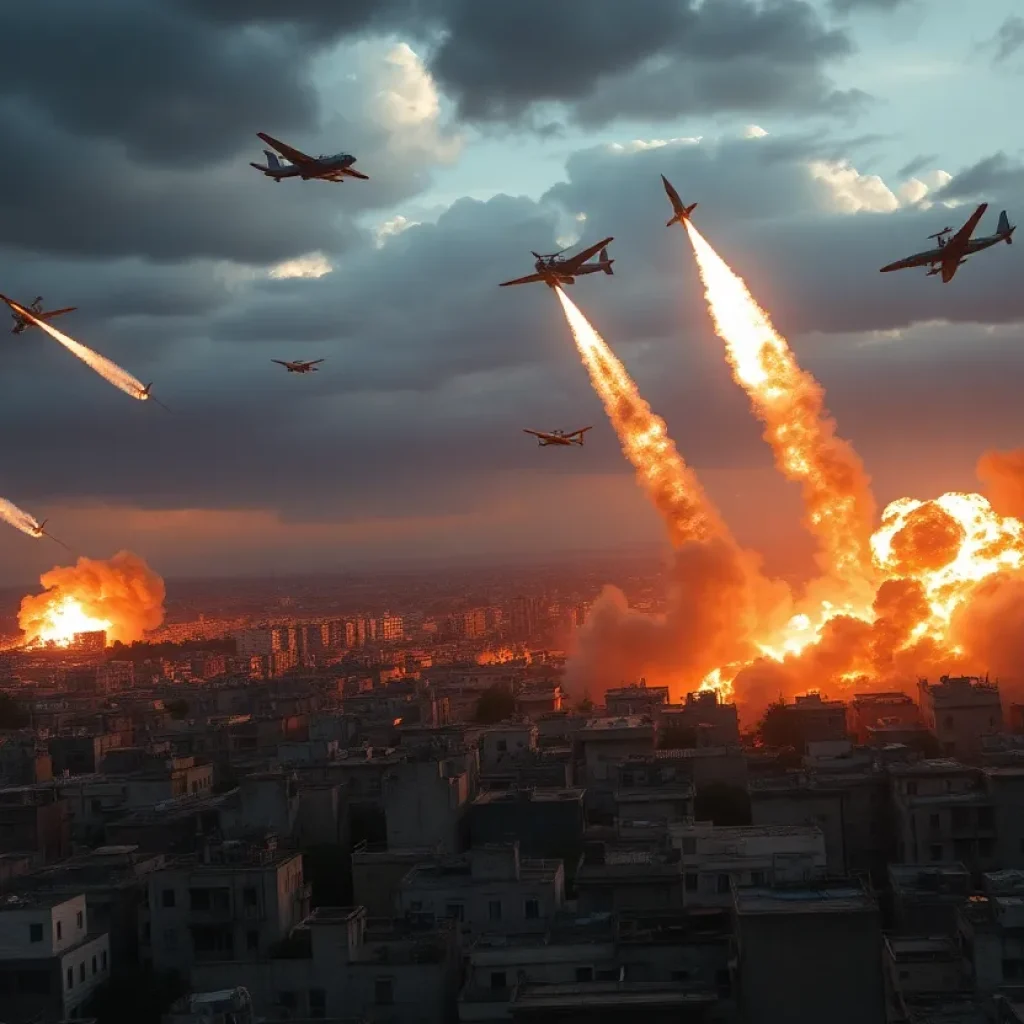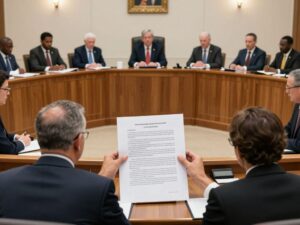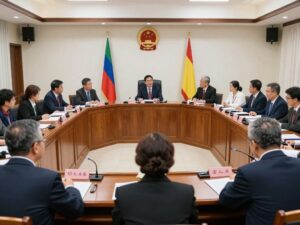News Summary
Following the U.S. suspension of military intelligence sharing with Ukraine, Russian attacks have sharply increased. Reports indicate that Ukraine is facing hundreds of aerial assaults, including the use of ballistic missiles and drones. Former President Trump’s administration has raised concerns among allies about the implications of this decision, as military analysts point to multiple risks for Ukraine’s defense capabilities. European leaders are now exploring alternatives to bolster security amidst this evolving crisis.
Escalation in Russian Attacks Following U.S. Intelligence Sharing Suspension
In a notable turn of events, Russia’s aerial assaults on Ukraine have soared dramatically since the U.S. stopped sharing vital military intelligence with its eastern European ally. The escalation, reported in March 2025, coincided with changes in the U.S. administration under former President Trump, who initiated a suspension of intelligence and military equipment sharing that has left Ukraine in a precarious situation.
Intensified Attacks on Ukraine
Since the halt, Ukraine has reported hundreds of attacks originating from Russia, with ballistic missiles and drones being used extensively. The Ukrainian President, Volodymyr Zelenskyy, has been at the forefront, shedding light on the ongoing aggression from Moscow that has resulted in tragic civilian casualties, including fatalities among children and significant damage to homes.
The Impact of U.S. Intelligence Suspension
The suspension of U.S. intelligence sharing has raised concerns about how Ukraine can defend itself against these increased attacks. Specifically, military analysts have highlighted that the lack of targeting data for U.S.-provided weapons, such as HIMARS, and key satellite imagery has hindered Ukraine’s abilities and could turn the tide of conflict in favor of Russia. It has even been described as rendering Ukraine ‘partially blind’ in a battlefield where information is critical.
Fiona Hill, a former senior director for European and Russian affairs on the National Security Council, emphasized the ramifications of this decision—not only has it seemingly emboldened Russia, but it has also put a strain on allies who do not possess the same level of intelligence resources as the U.S., like the UK.
Concerns Among Allies
The decision to limit intelligence sharing has sparked debates among allied nations who are now questioning their future engagements and reliance on the U.S. for vital information. There’s a growing sense of instability and uncertainty among European leaders, with many contemplating alternative measures for defense beyond U.S. support. Confidence in the U.S. as a reliable ally is deeply shaken.
Mixed Messages from U.S. Leadership
In the U.S., reactions to the increased aggressiveness of Russia have been mixed. While Trump acknowledged the situation, he suggested that any nation would react similarly to the U.S. withholding intelligence from Ukraine, downplaying the severity of the attacks. His envoy to Ukraine went as far as to imply that Ukraine’s government had a part to play in the current situation, comparing the intelligence suspension to ‘hitting a mule with a two-by-four,’ a rather unhelpful analogy given the unfolding conflict.
Russia’s Ongoing Attacks and Peace Negotiations
The ongoing Russian missile strikes continue to pose a threat, leading to heavy civilian casualties and prompting discussions on potential peace terms from Ukraine. Ukrainian leadership has expressed its readiness to negotiate but has underscored the urgent need for security guarantees that would protect them from future aggressions—a necessity that grows more pressing in light of recent events.
European Leaders React
European leaders, including figures like British Prime Minister Keir Starmer and French President Emmanuel Macron, have voiced serious concerns about the implications of the U.S. decision. They are beginning to explore European defense mechanisms to ensure greater stability and security amidst uncertainties stemming from U.S. policy shifts.
Conclusion
In light of the U.S. intelligence sharing suspension, the future of Ukraine’s defense strategy remains uncertain. The ongoing Russian attacks have not only intensified but have highlighted the fragile nature of international alliances. As Ukraine grapples with these challenges, the call for strengthened security measures and a united front among allies grows louder. The path ahead is fraught with challenges, but Ukraine’s resolve to seek peace—while fortifying its defenses—remains steadfast.
Deeper Dive: News & Info About This Topic
- The Guardian: Trump Suspending US Intelligence Sharing
- Fox News: US-Ukraine Intelligence
- CBS News: Russia Strikes Ukraine
- Reuters: Trump Expects Good Results in Ukraine Talks
- Wikipedia: Ukraine
- Encyclopedia Britannica: Ukraine

Author: STAFF HERE Chapin
CHAPIN STAFF WRITER The CHAPIN STAFF WRITER represents the experienced team at HEREchapin.com, your go-to source for actionable local news and information in Chapin, Lexington County, and beyond. Specializing in "news you can use," we cover essential topics like product reviews for personal and business needs, local business directories, politics, real estate trends, neighborhood insights, and state news affecting the area—with deep expertise drawn from years of dedicated reporting and strong community input, including local press releases and business updates. We deliver top reporting on high-value events such as the Chapin Christmas Parade, Fourth of July Celebration, and the Chapin Fall Festival. Our coverage extends to key organizations like the Chapin Chamber of Commerce and the Lexington School District One, plus leading businesses in retail and recreation that power the local economy such as Lake Murray Tourism and the Chapin Visitor Information. As part of the broader HERE network, including HEREaiken.com, HEREbeaufort.com, HEREchapin.com, HEREcharleston.com, HEREclinton.com, HEREcolumbia.com, HEREgeorgetown.com, HEREgreenwood.com, HEREgreenville.com, HEREhiltonhead.com, HEREirmo.com, HEREmyrtlebeach.com, HEREnewberry.com, HERErockhill.com, HEREspartanburg.com, HEREaustin.com, HEREcollegestation.com, HEREdallas.com, HEREhouston.com, and HEREsanantonio.com, we provide comprehensive, credible insights into South Carolina's dynamic landscape.

























